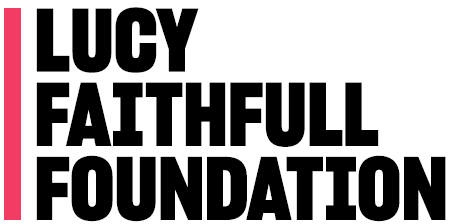Everyone's Safer in school: insights from one year of tackling harmful sexual behaviour
In January 2022 we launched a project to tackle sexual harassment and online sexual abuse, which are growing issues for young people across the UK and globally.
At the end of the project’s first year, we’re thrilled to publish a report on what we’ve found so far.
Everyone’s Safer was established in response to Ofsted’s rapid review of sexual abuse in schools and colleges in 2021 which concluded that harmful sexual behaviour (HSB) incidents were now “commonplace” in education settings.
The Everyone’s Safer project seeks to answer the questions that stemmed from that report: what works to respond to and prevent HSB in schools? How can we develop whole-school cultures of resilience so that young people feel safer?
“We are delighted to share the report on the findings of the first year of our action research project and hope it will be of interest to all the schools involved, the wider education sector and all those agencies working together to manage HSB in schools” said Laura Nott, Schools Project Manager at The Lucy Faithfull Foundation.
What does the project hope to achieve?
The project aims to:
- make schools safer places for children and young people by preventing HSB
- produce evidence and insights to influence government and education strategy
- help schools to respond well when an incident of HSB occurs
In line with these aims, the project works towards achieving these four outcomes:
- when an incident of HSB occurs, all those involved are supported well – students, parents and carers, and staff
- schools benefit from the experience of others (specialist organisations, academics and other schools) and have access to resources to support their responses to HSB incidents when they arise
- statutory agencies understand key issues schools face on the ground and provide better support to schools to prevent and tackle HSB
- public distribution of resources and evidence produced as part of the current project to contribute to the body of knowledge around tackling and responding to HSB in schools
A diverse range of schools
Funded by the KPMG Foundation, our Everyone’s Safer project runs in schools in the West Midlands and five surrounding counties.
To ensure that we selected a broad and diverse range of schools, we developed a strategy designed to promote inclusion. We also visited schools and worked with staff, students and parents to identify the HSB issues in each setting. To support the unique issues that the schools deal with, we drew up engagement plans and tailored packages of interventions to ensure the most flexible approach possible.
Interventions included different combinations of staff training, staff focus groups, workshops with parents, student focus groups, student education programmes, and safety planning work with individual students.
“We are very grateful to the first ten schools who took part” says Laura. “For all the staff, students and parents/carers shared with us – we say a big thank you.”
What did we learn from the evaluation?
We want to make sure that our work is effective and can be used by schools across the country, which is why we asked Dr Emily Setty at the University of Surrey to evaluate the interventions.
Here’s some of what that evaluation found.
Concerns about HSB
How HSB is conceptualised may differ between staff and students, leading to different perspectives on how it should be addressed. Responding to and tackling HSB in schools requires critical reflection on the part of staff as well as attention to the issues thought to be affecting students.
Causes of HSB
Noted causes (as perceived by both staff and students) of HSB across schools ranged from emotional dysregulation, experiences of abuse in the home, sexist attitudes and beliefs, peer pressure, poor understandings of consent and healthy/unhealthy relationships, and normalised ‘banter’ and low-level harassment, among others. Online sexual behaviours were considered a problem in most schools, pertaining to pornography and sexual/nude image sharing in particular.
Issues identified by students during focus groups
Perceptions and experiences of safety among students varied widely:
- students generally value Relationships, Sex, and Health Education (RSHE) but also identified constraints due to variation in practice among teachers and perceptions that RSHE does not reflect the reality of young people’s lives
- students expressed a lack of confidence in available reporting mechanisms within schools and were, therefore, reluctant to use them
- there was a clear desire among young people to be part of identifying problems and developing solutions rather than just being told what to do by adults
- gender stereotypes and inequalities were of concern to many
Consistency with other studies on HSB and RSHE
Students’ concerns were largely consistent with insights from other studies and reviews of HSB among young people in schools.
Identifying, reporting, and responding to HSB
Many schools emphasised the need to achieve consistency in awareness among students, parents, and school staff about what constitutes HSB and to improve willingness and ability to report and tackle incidents, including through preventative action.
Lessons from the first year and promising practice to share
Based upon the impact evaluations of the interventions delivered, three resources have been particularly well-received by staff and students. All three are proactive approaches to prevention that can be delivered to all students, whether or not they have been affected by HSB.
Protective Behaviours training for education professionals
The whole staff from two school staffs received a one-day introductory training course to enable them to deliver protective behaviours work with their students. Staff provided wholly positive feedback after the training, demonstrating that the course gave staff new insights and strategies, leading to improvements in both school climate and culture.
Bystander Intervention
Bystander Intervention relates to the power that those present have to influence the outcomes of a situation through challenging and/or supporting the individuals involved. Given that students in a number of schools demonstrated a desire to be part of solutions to tackle HSB, bystander education offered an opportunity to equip and empower students with new skills and strategies.
Participatory Relationships, Sex and Health Education
Extensive evidence attests to young people’s desire for active and participatory approaches to RSHE whereby their experiences and existing knowledge is taken seriously. To support this, a teacher training resource, entitled ‘Teaching participatory RSHE to transform school cultures’ was developed and piloted. This has received positive evaluations and will be refined and shared with schools during years two and three.
Looking to years two and three, Laura says: ‘We are especially pleased to be able to offer three areas of promising practice (protective behaviours, participatory RSHE and bystander education) which can be taught to all students to prevent HSB from happening in the first place. We will continue to embed and evaluate this work and report back at the end of each project year.’
Next steps
All 10 schools have been recruited for the second year of the project and initial visits are underway. Findings from year two will be shared in March 2024, with a final project report published in March 2025.
Find out more
For more information about the project and to get involved, please get in contact with Laura Nott, our Schools Project Manager, on 07706 347981 or lnott@lucyfaithfull.org.uk.
Take a look at our information for schools which includes free resources, information and guidance.
Sign up for news & updates
Fill in our newsletter form hereTo support our work to protect children, donate today.
Donate today






